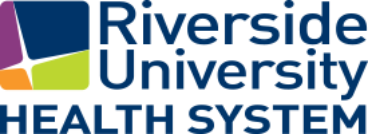RUHS joins pilot program to promote low-dose aspirin as preeclampsia preventative
Wednesday, January 11, 2023
Initiative aims to reduce preeclampsia rates and eliminate health disparities experienced by Black women
Riverside University Health System (RUHS) – Medical Center has joined a pilot program led by the California Maternal Quality Care Collaborative (CMQCC) to promote the use of low-dose aspirin as an effective means to prevent preeclampsia.
Preeclampsia is a serious condition that causes high blood pressure and organ injury in pregnant women, putting them and their babies at risk. It affects about 4% of pregnancies in the United States and accounts for 6% of preterm births. Risk factors for preeclampsia include women who:
- Had preeclampsia in a previous pregnancy
- Are pregnant with multiples (twins, triplets or more)
- Have high blood pressure, diabetes, kidney disease or an autoimmune disease (lupus, rheumatoid arthritis, etc.)
- Never had a baby before, or it has been more than 10 years since their last baby
- Have a mother or sister who had preeclampsia
- Were low birthweight babies or had a previous pregnancy with a low birthweight baby
- Are obese
- Are older than 35 and
- Have a low socioeconomic status.
In an effort to make positive and lasting change in Californian communities, CMQCC has chosen RUHS – Medical Center as one of five hospitals in which to pilot educational materials that promote the use of low-dose aspirin in high-risk pregnant women. Studies have shown that low-dose aspirin is the only known effective preeclampsia preventative.
The pilot project, which will run throughout 2023, will include workshops and trainings for providers and flyers and posters aimed at clients. Researchers will gather and analyze data produced by RUHS with the goal of showing that this initiative is effective at reducing rates of preeclampsia in Riverside County. Black women are more likely than women of other racial/ethnic groups to develop preeclampsia; therefore, a special focus of this project will be eliminating health disparities experienced by Black women.
Miss Williams, who prefers to be identified by her last name, is a 33-year-old Creole and Black woman who is currently on a low-dose aspirin regimen as she approaches the birth of her fourth child. Originally a patient at a private clinic, Miss Williams was transferred to the care of RUHS when she developed high blood pressure early in her pregnancy.
“At one point, I didn’t think I would get as far as I am in my pregnancy. It was a very overwhelming situation. I was relieved when I was transferred to RUHS, because the doctors here seemed more knowledgeable and equipped to handle my pregnancy,” said Miss Williams.
Dr. Bryan Oshiro, chief of Maternal-Fetal Medicine and medical director of the High-Risk Care Access & Resources (HeRCARe) Program at RUHS – Medical Center, says he has seen the effectiveness of a low-dose aspirin regimen, which has been used at RUHS for several years.
“I have seen patients who were at high-risk of preeclampsia take low-dose aspirin and then go on to have safe and healthy pregnancies. We are thankful to work with our partners to promote this initiative with our patients and further our mission to improve the health and well-being of our communities,” said Dr. Oshiro.
“Clinical interventions alone are not enough to close gaps in maternal health disparities,” said Leslie Kowalewski, administrative director at CMQCC. “This project elevates community partners and patient experiences in the quality improvement process to establish connections between hospitals and the communities they serve. This collaboration will result in a long-term, sustainable and holistic approach to strengthening maternal healthcare in California and beyond.”
